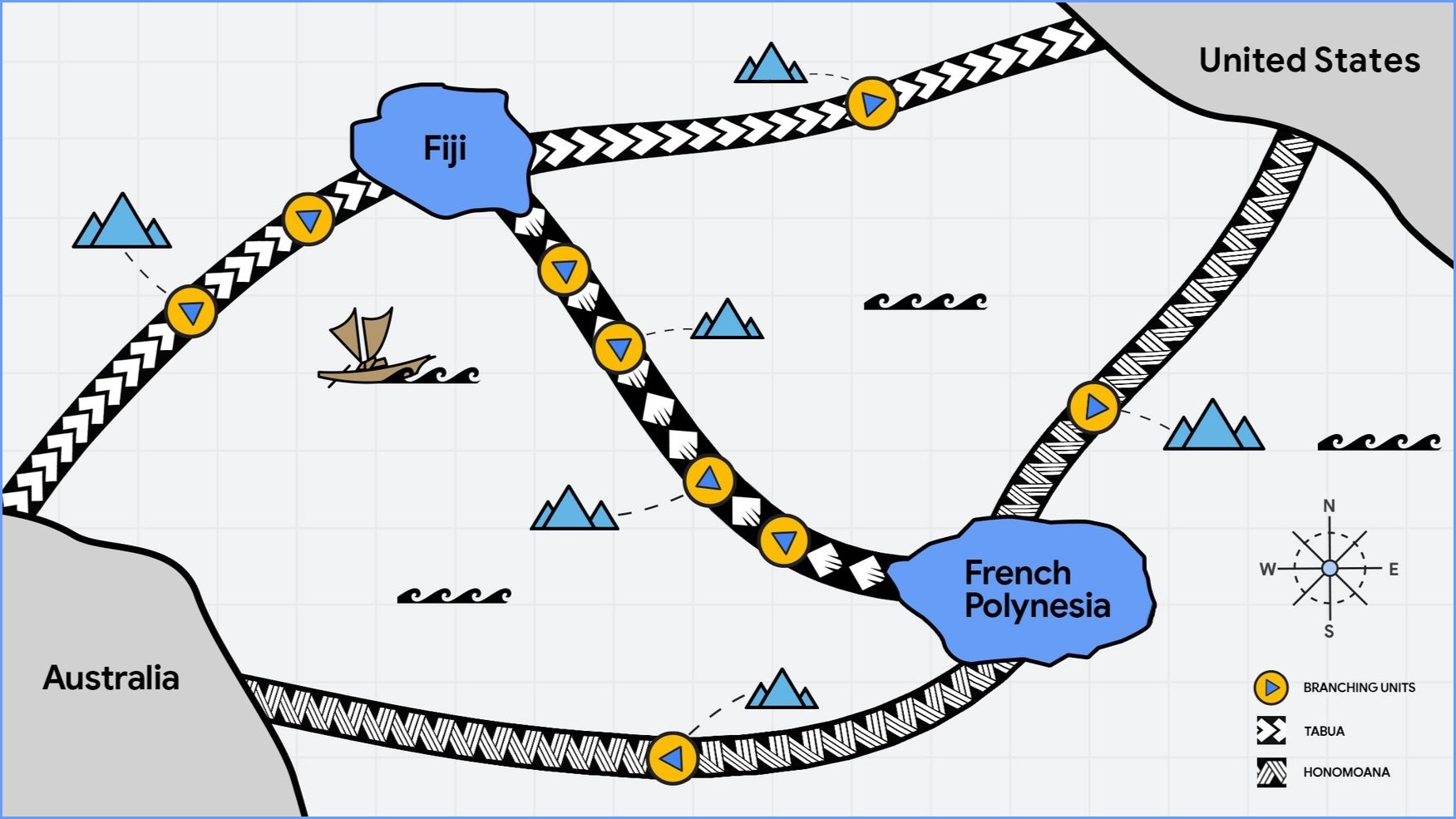Australian fibre optic and networking company Vocus will help Google provide two new subsea cables connecting Fiji and French Polynesia with Australia and the United States.
Google has worked closely with the Fijian and French Polynesian governments to lead what it’s calling the ‘South Pacific Connect initiative’ that the tech giant said will “bring redundant international connectivity to a region that is susceptible to natural disasters”.
Google CEO Sundar Pichai said he was “excited to see [the initiative] improve access to reliable digital services in the Pacific region and beyond”.
According to Vocus CEO Ellie Sweeney, some 97 per cent of internet traffic is delivered via submarine cables.
“Vocus is delighted to be Google’s preferred partner to deliver the South Pacific Connect initiative, which will significantly uplift the capacity, reliability, and resilience of Australia’s international connectivity,” she said.
“The system will establish three diverse Australian landings along with dual cable paths to the US, substantially improving the resilience of Australia’s critical connections to the world.”
Along with its two main cables – called Honomoana and Tabua – the project will also include an interlink cable directly connecting Fiji with French Polynesia and a set of branching units to bring reliable, low-latency connections to other countries in the region.
The investment in more subsea cables suggests that there is still a need for terrestrial internet assets at a time when constellations of low Earth orbit satellites from SpaceX’s Starlink and, soon Amazon, are providing decent connections to traditionally hard-to-service locations.
It also points toward geostrategic interests as Australia and the US attempt to exercise their power in a region where China has been gaining influence.
According to a joint statement from Prime Minister Anthony Albanese and President Joe Biden, Australia and the US have both committed to forking out $103 million (US$65 million) as part of the broader project “to assist access to global markets and realisation of regional connectivity goals”.
“We plan to work collaboratively with commercial cable providers Google and Hawaiki Nui, in partnership with Pacific Island countries, to provide branching units for Federated States of Micronesia, Kiribati, Marshall Islands, Nauru, Papua New Guinea, Solomon Islands, Timor-Leste, Tuvalu, and Vanuatu,” the joint statement said.
“Building on existing support to the region, this work will position all Pacific Island countries to achieve primary connectivity and for countries with existing access to secure options for critical redundancy.”
The statement also discusses increasing cyber resilience for South Pacific nations, including through “upgraded data services and cloud-based back-ups”.
Technology has been an important theme of Albanese’s Washington visit this week which has seen the Prime Minister gladly offer his stamp of approval to Microsoft’s $5 billion spend on its Australian digital infrastructure footprint.










